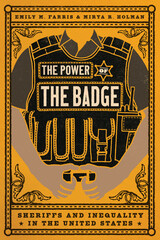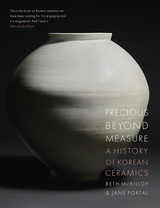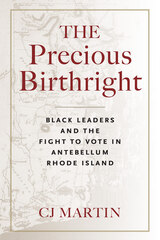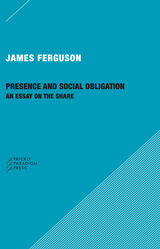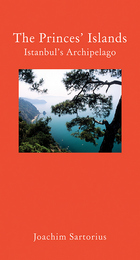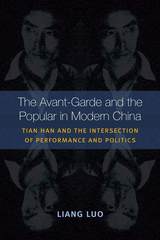
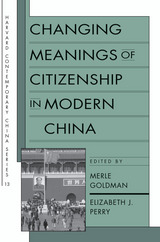
This collection of essays addresses the meaning and practice of political citizenship in China over the past century, raising the question of whether reform initiatives in citizenship imply movement toward increased democratization.
After slow but steady moves toward a new conception of citizenship before 1949, there was a nearly complete reversal during the Mao regime, with a gradual reemergence beginning in the Deng era of concerns with the political rights as well as the duties of citizens. The distinguished contributors to this volume address how citizenship has been understood in China from the late imperial era to the present day, the processes by which citizenship has been fostered or undermined, the influence of the government, the different development of citizenship in mainland China and Taiwan, and the prospects of strengthening citizens' rights in contemporary China.
Valuable for its century-long perspective and for placing the historical patterns of Chinese citizenship within the context of European and American experiences, Changing Meanings of Citizenship in Modern China investigates a critical issue for contemporary Chinese society.
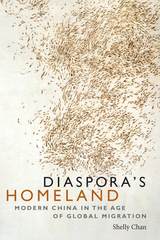

What are states, and how are they made? Scholars of European history assert that war makes states, just as states make war. This study finds that in China, the challenges of governing produced a trajectory of state-building in which the processes of moral regulation and social control were at least as central to state-making as the exercise of coercive power.
State-making is, in China as elsewhere, a profoundly normative and normalizing process. This study maps the complex processes of state-making, moral regulation, and social control during three critical reform periods: the Yongzheng reign (1723-1735), the Guomindang's Nanjing decade (1927-1937), and the Communist Party's Socialist Education Campaign (1962-1966). During each period, central authorities introduced—not without resistance—institutional change designed to extend the reach of central control over local political life. The successes and failures of state-building in each case rested largely upon the ability of each regime to construct itself as an autonomous moral agent both separate from and embedded in an imagined political community. Thornton offers a historical reading of the state-making process as a contest between central and local regimes of bureaucratic and discursive practice.
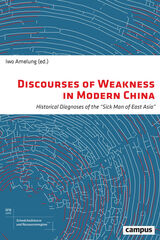
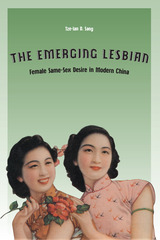
In this first ever book-length study of Chinese lesbians, Tze-lan D. Sang convincingly ties the debate over female same-sex love in China to the emergence of Chinese modernity. As women's participation in social, economic, and political affairs grew, Sang argues, so too did the societal significance of their romantic and sexual relations. Focusing especially on literature by or about women-preferring women, Sang traces the history of female same-sex relations in China from the late imperial period (1600-1911) through the Republican era (1912-1949). She ends by examining the reemergence of public debate on lesbians in China after Mao and in Taiwan after martial law, including the important roles played by globalization and identity politics.


The demise of state-owned enterprises, the transformation of collectives into shareholding cooperatives, and the creation of investment opportunities through stock markets indicate China's movement from a socialist, state-controlled economy toward a socialist market economy. Yet, contrary to high expectations that China's new enterprises will become like corporations in capitalist countries, management often remains under the control of the onetime bureaucrats who ran the socialist enterprises.
The concepts, definitions, and interpretations of property rights, corporate structures, and business practices in contemporary China have historical, institutional, and cultural roots. In tracing the development under founder Zhang Jian (1853-1926) and his successors of the Dasheng Cotton Mill in Nantong into a business group encompassing, among other concerns, cotton, flour, and oil mills, land development companies, and shipping firms, the author documents the growth of regional enterprises as local business empires from the 1890s until the foundation of the People's Republic in 1949. She focuses on the legal and managerial evolution of limited-liability firms in China, particularly issues of control and accountability; the introduction and management of industrial work in the countryside; and the integration and interdependency of local, national, and international markets in Republican China.
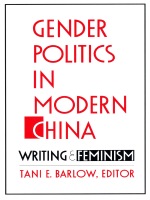
Ranging from interviews with contemporary writers, to historical accounts of gendered writing in Taiwan and semi-colonial China, to close feminist readings of individual authors, these essays confront the degree to which textual stategies construct notions of gender. Among the specific themes discussed are: how femininity is produced in texts by allocating women to domestic space; the extent to which textual production lies at the base of a changing, historically specific code of the feminine; the extent to which women in modern Chinese societies are products of literary canons; the ways in which the historical processes of gendering have operated in Chinese modernity vis à vis modernity in the West; the representation of feminists as avengers and as westernized women; and the meager recognition of feminism as a serious intellectual current and a large body of theory.
Originally published as a special issue of Modern Chinese Literature (Spring & Fall 1988), this expanded book represents some of the most compelling new work in post-Mao feminist scholarship and will appeal to all those concerned with understanding a revitalized feminism in the Chinese context.
Contributors. Carolyn Brown, Ching-kiu Stephen Chan, Sung-sheng Yvonne Chang, Yu-shih Chen, Rey Chow, Randy Kaplan, Richard King, Wolfgang Kubin, Wendy Larson, Lydia Liu, Seung-Yeun Daisy Ng, Jon Solomon, Meng Yue, Wang Zheng

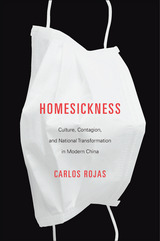
The collapse of China’s Qing dynasty coincided roughly with discoveries that helped revolutionize views of infectious disease. Together, these parallel developments generated a set of paradigm shifts in the understanding of society, the individual, as well as the cultural matrix that mediates between them. In Homesickness, Carlos Rojas examines an array of Chinese literary and cinematic tropes of illness, arguing that these works approach sickness not solely as a symptom of dysfunction but more importantly as a key to its potential solution.
Rojas focuses on a condition he calls “homesickness”—referring to a discomfort caused not by a longing for home but by an excessive proximity to it. The product of a dialectics of internal alienation and self-differentiation, this inverse homesickness marks a movement away from the “home,” conceived as spaces associated with the nation, the family, and the individual body. The result is a productive dynamism that gives rise to the possibility of long-term health. Without sickness, in other words, there could be no health.
Through a set of detailed analyses of works from China, Greater China, and the global Chinese diaspora—ranging from late-imperial figures such as Liu E and Zeng Pu to contemporary figures such as Yan Lianke and Tsai Ming-liang—Rojas asserts that the very possibility of health is predicated on this condition of homesickness.
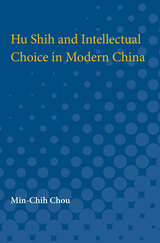
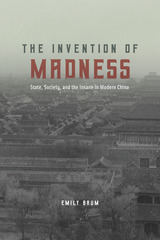
Focusing on typically marginalized historical actors, including municipal functionaries and the urban poor, The Invention of Madness shifts our attention from the elite desire for modern medical care to the ways in which psychiatric discourses were implemented and redeployed in the midst of everyday life. New meanings and practices of madness, Baum argues, were not just imposed on the Beijing public but continuously invented by a range of people in ways that reflected their own needs and interests. Exhaustively researched and theoretically informed, The Invention of Madness is an innovative contribution to medical history, urban studies, and the social history of twentieth-century China.

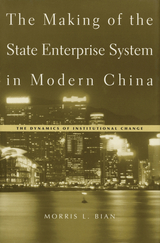
When, how, and why did the state enterprise system of modern China take shape? The conventional argument is that China borrowed its economic system and development strategy wholesale from the Soviet Union in the 1950s. In an important new interpretation, Morris Bian shows instead that the basic institutional arrangement of state-owned enterprise—bureaucratic governance, management and incentive mechanisms, and the provision of social services and welfare—developed in China during the war years 1937–1945.
Bian offers a new theory of institutional change that explains the formation of China’s state enterprise system as the outcome of the sustained systemic crisis triggered by the Sino–Japanese war. This groundbreaking work combines critical analysis of government policies with case studies of little-studied enterprises in heavy industries and the ordnance industry. Drawing on extensive research in previously unavailable archives, Bian adds a valuable historical perspective to the current debate on how to reform China’s sluggish and unprofitable state-owned firms.
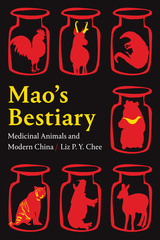


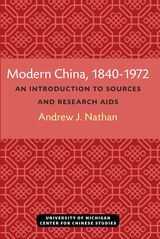

In the new millennium all eyes are on China, which many believe has the potential in the near future to rise to world prominence as a political leader and an economic powerhouse. Yet several aspects of Chinese society remain an obstacle to internal growth and of deep concern to the outside world.
In Modern China Graham Hutchings offers a timely and useful reference guide to the people, places, ideas, and events crucial to an understanding of this rising power. The focus is on society and politics and their impact on both China and the world. After an introduction that discusses key themes in twentieth-century China, Hutchings provides over two hundred insightful short essays, arranged alphabetically, that cover central figures and events from Sun Yat-sen to Jiang Zemin and the Boxer Rebellion to Tiananmen Square. Included are separate entries on each province, the current political leadership, and the two colonies recently returned to Chinese control, Hong Kong and Macau, as well as trenchant essays on subjects that remain sensitive within and controversial outside China, such as religion, ethnic minorities, Tibet, Taiwan, and human rights.
Accessible and authoritative, Modern China is invaluable for anyone interested in the transformation of this ancient land into a modern power.
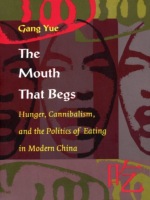
Yue’s discussion begins with a brief look at ancient Chinese alimentary writing and then moves on to its main concern: the exploration and textual analysis of themes of eating in modern Chinese literature from the May Fourth period through the post-Tiananmen era. The broad historical scope of this volume illustrates how widely applicable eating-related metaphors can be. For instance, Yue shows how cannibalism symbolizes old China under European colonization in the writing of Lu Xun. In Mo Yan’s 1992 novel Liquorland, however, cannibalism becomes the symbol of overindulgent consumerism. Yue considers other writers as well, such as Shen Congwen, Wang Ruowang, Lu Wenfu, Zhang Zianliang, Ah Cheng, Zheng Yi, and Liu Zhenyun. A special section devoted to women writers includes a chapter on Xiao Hong, Wang Anyi, and Li Ang, and another on the Chinese-American women writers Jade Snow Wong, Maxine Hong Kingston, and Amy Tan. Throughout, the author compares and contrasts the work of these writers with similarly themed Western literature, weaving a personal and political semiotics of eating.
The Mouth That Begs will interest sinologists, literary critics, anthropologists, cultural studies scholars, and everyone curious about the semiotics of food.
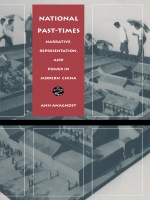
Using interviews and participant observation as well as close readings of official documents, propaganda materials, and popular media, Anagnost notes the discontinuities in the nation’s narrative—moments where this narrative has been radically reorganized at critical junctures in China’s modern history. Covering a broad range of issues relating to representation and power—issues that have presented themselves with particular clarity in the years since the violent crackdown on the student movement of 1989—National Past-Times critiques the ambiguous possibilities produced by the market, as well as new opportunities for "unfreedom" in the discipline of labor and the commodification of women. Anagnost begins with a retrospective reflection on the practice of "speaking bitterness" in socialist revolutionary practice. Subsequent essays discuss the culture debates of the 1980s, the discourse of social disorder, the issue of population control, the film The Story of Qiu Ju, and anomalies at the theme park "Splendid China."
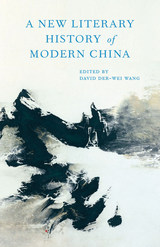
Literature, from the Chinese perspective, makes manifest the cosmic patterns that shape and complete the world—a process of “worlding” that is much more than mere representation. In that spirit, A New Literary History of Modern China looks beyond state-sanctioned works and official narratives to reveal China as it has seldom been seen before, through a rich spectrum of writings covering Chinese literature from the late-seventeenth century to the present.
Featuring over 140 Chinese and non-Chinese contributors from throughout the world, this landmark volume explores unconventional forms as well as traditional genres—pop song lyrics and presidential speeches, political treatises and prison-house jottings, to name just a few. Major figures such as Lu Xun, Shen Congwen, Eileen Chang, and Mo Yan appear in a new light, while lesser-known works illuminate turning points in recent history with unexpected clarity and force. Many essays emphasize Chinese authors’ influence on foreign writers as well as China’s receptivity to outside literary influences. Contemporary works that engage with ethnic minorities and environmental issues take their place in the critical discussion, alongside writers who embraced Chinese traditions and others who resisted. Writers’ assessments of the popularity of translated foreign-language classics and avant-garde subjects refute the notion of China as an insular and inward-looking culture.
A vibrant collection of contrasting voices and points of view, A New Literary History of Modern China is essential reading for anyone seeking a deeper understanding of China’s literary and cultural legacy.

Popular operas in late imperial China were a major part of daily entertainment, and were also important for transmitting knowledge of Chinese culture and values. In the twentieth century, however, Chinese operas went through significant changes. During the first four decades of the 1900s, led by Xin Wutai (New Stage) of Shanghai and Yisushe of Xi’an, theaters all over China experimented with both stage and scripts to present bold new plays centering on social reform. Operas became closely intertwined with social and political issues. This trend toward “politicization” was to become the most dominant theme of Chinese opera from the 1930s to the 1970s, when ideology-laden political plays reflected a radical revolutionary agenda.
Drawing upon a rich array of primary sources, this book focuses on the reformed operas staged in Shanghai and Xi’an. By presenting extensive information on both traditional/imperial China and revolutionary/Communist China, it reveals the implications of these “modern” operatic experiences and the changing features of Chinese operas throughout the past five centuries. Although the different genres of opera were watched by audiences from all walks of life, the foundations for opera’s omnipresence completely changed over time.
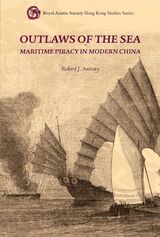
In Outlaws of the Sea, Robert J. Antony provides a comprehensive account of the history of maritime piracy in coastal south China from the 1630s to the 1940s. He neither romanticizes nor maligns pirates, but rather analyzes them in the context of their times and the broader world in which they lived. The author demonstrates that Chinese piracy was a pervasive force shaping maritime society as it ebbed and flowed between sporadic, small-scale ventures and professional, large-scale enterprises in the modern era. This book offers important new insights into the underside of modern China’s history and the interactions between pirates, foreign traders, local communities, and the state.
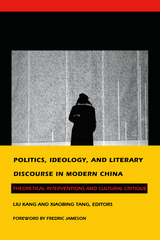
With chapters by writers, scholars, and critics from mainland China, Hong Kong, and the United States, this volume explores the complexity of representing modernity within the Chinese context. Addressing the problem of finding a proper language for articulating fundamental issues in the historical experience of twentieth-century China, the authors critically re-examine notions of realism, the self/subject, and modernity and draw on perspectives from feminist criticism, ideological analysis, and postmodern theory. Among the many topics explored are subjectivity in Chinese cultural theory, Chinese gender relations, the viability of a Lacanian approach to Chinese identity, the politics of subversion in Chinese reportage, and the ambivalent status of the icon of paternity since Mao.
At the same time this book offers a probing look into the transformation that Chinese culture as well as the study of that culture is currently undergoing, it also reconfirms private discourse as an ideal site for an investigation into a real and imaginary, private and collective encounter with history.
Contributors. Liu Kang, Xiaobing Tang, Liu Zaifu, Stephen Chan, Lydia H. Liu, Wendy Larson, Theodore Huters, David Wang, Tonglin Lu, Yingjin Zhang, Yuejin Wang, Li Tuo, Leo Ou-fan Lee
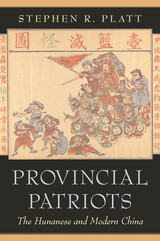
From the Taiping Rebellion in the mid-nineteenth century to the Chinese Communist movement in the twentieth, no province in China gave rise to as many reformers, military officers, and revolutionaries as did Hunan. Stephen Platt offers the first comprehensive study of why Hunan wielded such disproportionate influence.
Covering a span of eight decades, this book portrays three generations of Hunanese scholar-activists who held their provincial loyalties above their allegiances to a questionable Chinese empire. The renaissance of Hunan centered around the revival of Wang Fuzhi, a local hermit scholar from the seventeenth century whose iconoclastic writings were deemed a remarkable match for "Western" ideas of progress, humanism, and nationalism. Advocates of reform and revolution thus framed their projects as the continuance of a local tradition--the natural destiny of the Hunanese people--creating a tradition of reform and nationalism that culminated in the 1920s with a Hunanese independence movement led by the young Mao Zedong.
By putting provincial Hunan at the center of this narrative, Platt uncovers an unexpected and surprising story of modern China that sheds light on the current resurgence of regionalism in the country.
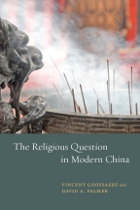
Recent events—from strife in Tibet and the rapid growth of Christianity in China to the spectacular expansion of Chinese Buddhist organizations around the globe—vividly demonstrate that one cannot understand the modern Chinese world without attending closely to the question of religion. The Religious Question in Modern China highlights parallels and contrasts between historical events, political regimes, and cultural movements to explore how religion has challenged and responded to secular Chinese modernity, from 1898 to the present.
Vincent Goossaert and David A. Palmer piece together the puzzle of religion in China not by looking separately at different religions in different contexts, but by writing a unified story of how religion has shaped, and in turn been shaped by, modern Chinese society. From Chinese medicine and the martial arts to communal temple cults and revivalist redemptive societies, the authors demonstrate that from the nineteenth century onward, as the Chinese state shifted, the religious landscape consistently resurfaced in a bewildering variety of old and new forms. The Religious Question in Modern China integrates historical, anthropological, and sociological perspectives in a comprehensive overview of China’s religious history that is certain to become an indispensible reference for specialists and students alike.
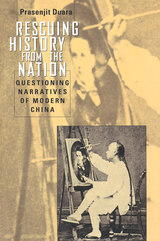
The backlash against such histories has resulted in a tendency to view the past as largely constructed, imagined, or invented. In this book, Duara offers a way out of the impasse between constructionism and the evolving nation; he redefines history as a series of multiple, often conflicting narratives produced simultaneously at national, local, and transnational levels. In a series of closely linked case studies, he considers such examples as the very different histories produced by Chinese nationalist reformers and partisans of popular religions, the conflicting narratives of statist nationalists and of advocates of federalism in early twentieth-century China. He demonstrates the necessity of incorporating contestation, appropriation, repression, and the return of the repressed subject into any account of the past that will be meaningful to the present. Duara demonstrates how to write histories that resist being pressed into the service of the national subject in its progress—or stalled progress—toward modernity.

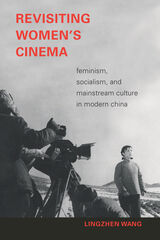
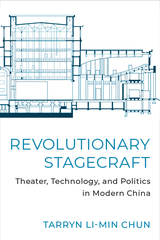
In thinking about theater through technicity, the author mines well-studied materials such as dramatic texts and performance reviews for hidden technical details and brings to light a number of previously untapped sources such as technical journals and manuals; set design renderings, lighting plots, and prop schematics; and stage technology how-to guides for amateur thespians. This approach focuses on material stage technologies, situating these objects equally in relation to their technical potential, their human use, and the social, political, economic, and cultural forces that influence them. In each of its case studies, Revolutionary Stagecraft reveals the complex and at times surprising ways in which Chinese theater artists and technicians of the 20th century envisioned and enacted their own revolutions through the materiality of the theater apparatus.

During China’s transition from dynastic empire to nation-state, the crowd emerged as a salient trope. Intellectuals across the ideological spectrum have used the crowd trope to ruminate on questions of selfhood and nationhood, and to advance competing models of enlightenment and revolution.
Revolutionary Waves analyzes the centrality of the crowd in the Chinese cultural and political imagination and its global resonances by delving into a wide range of fiction, philosophy, poetry, and psychological studies. Bringing together literary studies, intellectual history, critical theory, and the history of human sciences, this interdisciplinary work highlights unexplored interactions among emerging social-scientific forms of knowledge, new aesthetic modes of representation, and changing political imperatives. The work brings into relief the complexities of the modern Chinese crowd discourse, which generated subjectivities and oriented actions, enabled as well as constrained the expression of togetherness, and thus both expanded and limited the horizon of political possibilities in the emerging age of mass politics.
The first in-depth examination of the aesthetics and politics of the crowd in modern Chinese literature and thought, Revolutionary Waves raises questions about the promise and peril of community as communion and reimagines collective life in China’s post-socialist present.

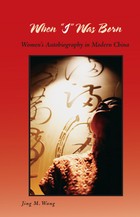
When “I” Was Born: Women’s Autobiography in Modern China reclaims the voices of these particular writers, voices that have been misinterpreted and overlooked for decades. Tracing women writers as they move from autobiographical fiction, often self-revelatory and personal, to explicit autobiographies that focused on women’s roles in public life, Jing M. Wang reveals the factors that propelled this literary movement, the roles that liberal translators and their renditions of Western life stories played, and the way in which these women writers redefined writing and gender in the stories they told. But Wang reveals another story as well: the evolving history and identity of women in modern Chinese society. When “I” Was Born adds to a growing body of important work in Chinese history and culture, women’s studies, and autobiography in a global context.
Writers discussed include Xie Bingying, Zhang Ailing, Yu Yinzi, Fei Pu, Lu Meiyen, Feng Heyi, Ye Qian, Bai Wei, Shi Wen, Fan Xiulin, Su Xuelin, and Lu Yin.
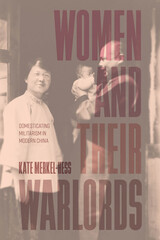
In Women and Their Warlords, historian Kate Merkel-Hess examines the lives and personalities of the female relatives of the military rulers who governed regions of China from 1916 to 1949. Posing for candid photographs and sitting for interviews, these women did not merely advance male rulers’ agendas. They advocated for social and political changes, gave voice to feminist ideas, and shaped how the public perceived them. As the first publicly political partners in modern China, the wives and concubines of Republican-era warlords changed how people viewed elite women’s engagement in politics. Drawing on popular media sources, including magazine profiles and gossip column items, Merkel-Hess draws unexpected connections between militarism, domestic life, and state power in this insightful new account of gender and authority in twentieth-century China.
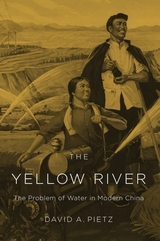
Flowing through the heart of the North China Plain—home to 200 million people—the Yellow River sustains one of China’s core regions. Yet this vital water supply has become highly vulnerable in recent decades, with potentially serious repercussions for China’s economic, social, and political stability. The Yellow River is an investigative expedition to the source of China’s contemporary water crisis, mapping the confluence of forces that have shaped the predicament that the world’s most populous nation now faces in managing its water reserves.
Chinese governments have long struggled to maintain ecological stability along the Yellow River, undertaking ambitious programs of canal and dike construction to mitigate the effects of recurrent droughts and floods. But particularly during the Maoist years the North China Plain was radically re-engineered to utilize every drop of water for irrigation and hydroelectric generation. As David A. Pietz shows, Maoist water management from 1949 to 1976 cast a long shadow over the reform period, beginning in 1978. Rapid urban growth, industrial expansion, and agricultural intensification over the past three decades of China’s economic boom have been realized on a water resource base that was acutely compromised, with effects that have been more difficult and costly to overcome with each passing decade. Chronicling this complex legacy, The Yellow River provides important insight into how water challenges will affect China’s course as a twenty-first-century global power.
READERS
Browse our collection.
PUBLISHERS
See BiblioVault's publisher services.
STUDENT SERVICES
Files for college accessibility offices.
UChicago Accessibility Resources
home | accessibility | search | about | contact us
BiblioVault ® 2001 - 2024
The University of Chicago Press


